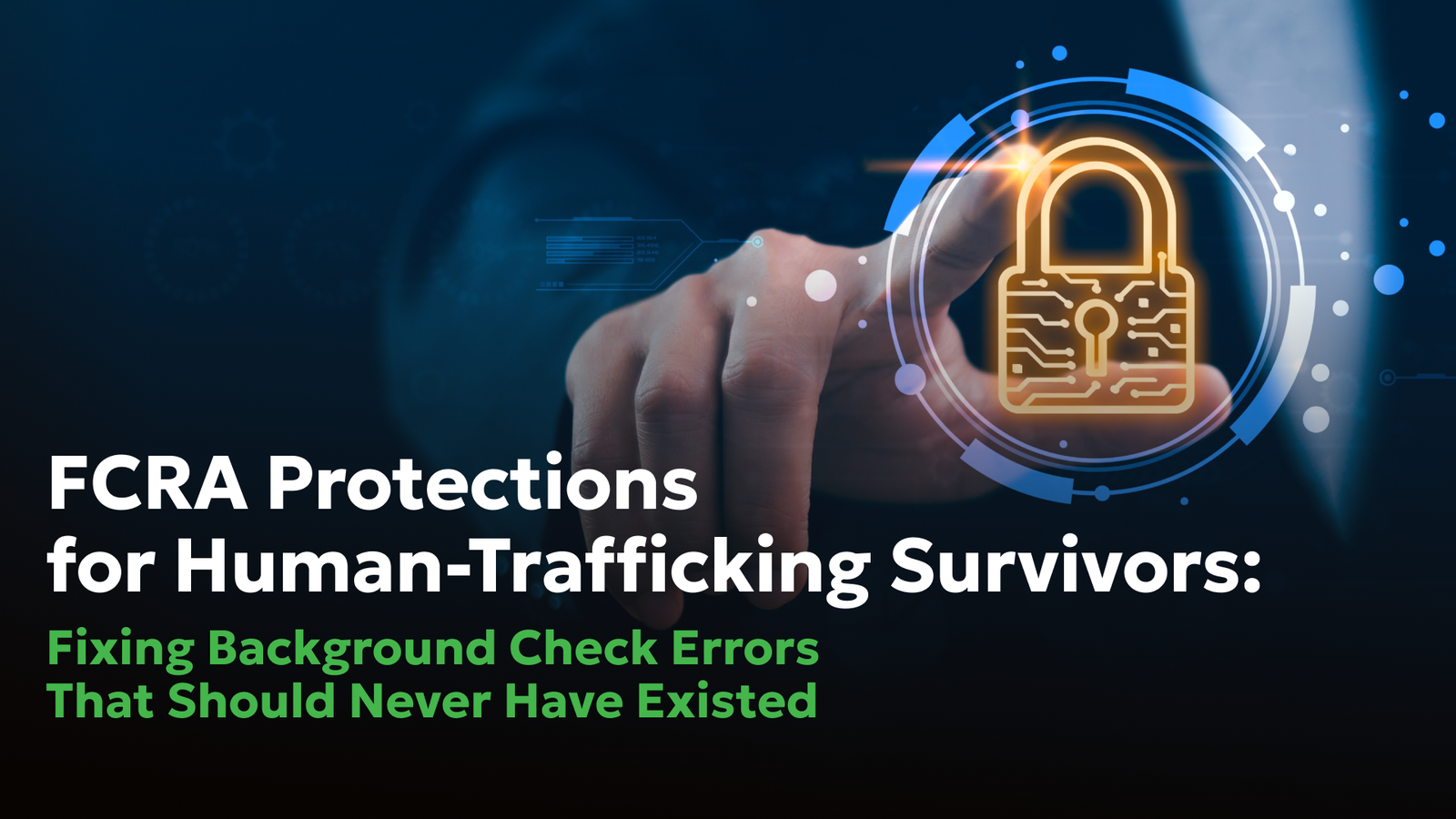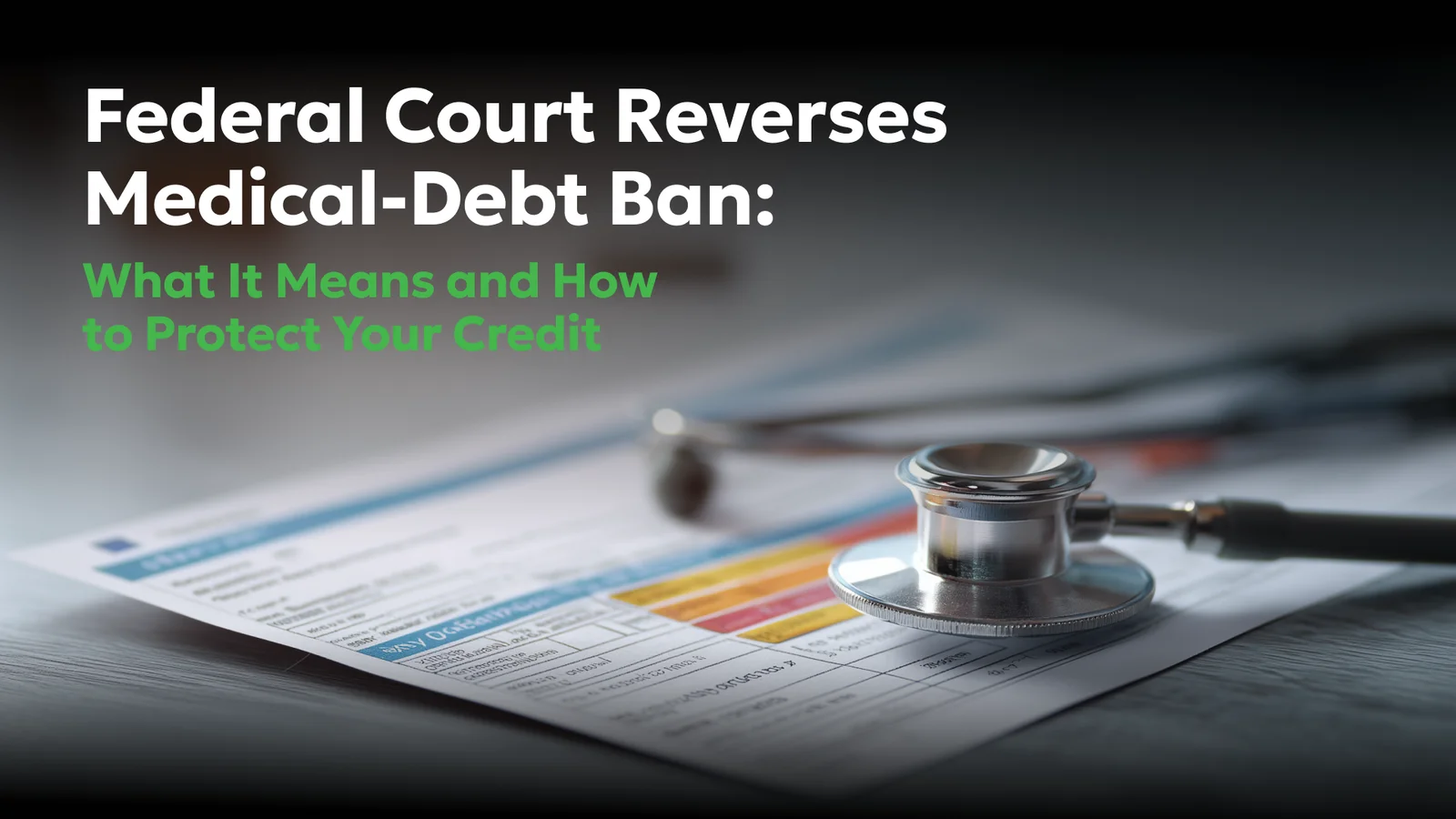How to Call Chase to Dispute a Credit Report?
- Blog
- Credit Reporting Inaccuracies
How to Call Chase to Dispute a Credit Report?

If You Were Denied a Chase Loan Because of Credit Report Errors, Discover How to Dispute Errors and Have Them Removed!
Struggling to get a Chase loan because of mistakes on your credit report? Consumer Attorneys will help you dispute and remove errors, ensuring your credit history is accurate and up to date. Keep reading to learn how you can reach out to our lawyers today to improve your chances of loan approval.
Being denied a loan because of errors on your credit report is more than just frustrating and unfair. Being denied a loan because of errors on your credit report also means losing an opportunity because of someone else’s mistake. Whether you need a loan for a home, a car, home improvement, education, travel, or something else, a credit report error can mean that opportunity is gone!
But don’t lose hope—you can dispute any errors and correct your credit history. You don't have to face it alone, whether it’s an inaccurate late payment, a collection account that doesn’t belong to you, or even an account opened by an identity thief. Whether the error lies with Chase or with a Consumer Reporting Agency (CRA), the credit reporting lawyers at Consumer Attorneys are here to guide you through the process and help you get back on track. Read on to learn how to dispute credit report errors and boost your chances of getting that loan approval.
Why Did Chase Deny My Loan?
If you were denied a loan by Chase, it might be due to:
| Reason for Denial | Explanation | Action You Can Take |
|---|---|---|
| Incorrect credit report data | Errors like incorrect late payments, collections, bankruptcies, or foreclosures on your credit report. | Dispute inaccuracies with the credit bureaus and request a correction. Contact an attorney for help in the dispute process. |
| Credit score | Chase prefers borrowers with strong credit histories for loan approval. | Work on improving your credit score by paying down debt, making on-time payments, and disputing any incorrect entries. |
| Limited credit history | Insufficient credit history can lead to a loan denial. | Build your credit by opening a secured credit card or taking out small loans and repaying them on time. |
| High debt-to-income ratio | Much of your income goes towards debt repayment, making you a higher risk for lenders. | Reduce your debt by paying down balances or consolidating debts to lower your debt-to-income ratio. |
| Employment history | Chase requires a stable employment history to ensure reliable income for loan repayment. | Demonstrate steady employment or provide additional documentation to explain gaps in your work history. |
| Loan type | Different loans, like mortgages, have stricter eligibility criteria than others. | Ensure you meet the specific requirements for the loan type you’re applying for and consider applying for a different loan. |
| Recent credit inquiries | Multiple recent credit applications can signal to Chase that you are taking on too much debt. | Avoid applying for multiple loans or credit cards quickly to keep inquiries low. |
| Insufficient collateral for secured loans | Chase may deny your application for loans requiring collateral if the collateral isn’t insufficient. | Ensure you have enough collateral or consider a different loan option that doesn't require collateral. |
| Unresolved credit disputes | Chase may deny a loan if unresolved credit report disputes are still under investigation. | Resolve any open credit disputes with the credit bureaus before reapplying for a loan. |
No matter the reason, you don’t have to accept the denial without a fight. If credit report errors played a role in Chase’s decision, our attorneys can help you dispute those errors, get them fixed, and even get compensation for the harm you suffered.
Sometimes, you don’t know that you need a lawyer until you’ve talked to a lawyer. That’s why you can call us and talk to one of our lawyers about your situation without paying us a cent.
Why Does My Credit Report Show Incorrect Information?
Credit report errors happen more often than you might think. It could be as simple as your information getting mixed up with someone else’s or resulting in identity theft. Either way, these errors can seriously impact your ability to get a loan or even open a new credit card.
In some cases, legitimate accounts are reported incorrectly—for example, a closed or paid-off account may still appear past due. Errors like these can drag down your credit score unfairly. Disputing these inaccuracies and providing the correct documentation is the best way to fix your credit and improve your chances of getting approved for loans in the future.
Spot an Error? Here’s What to Do
If you’ve been denied a loan due to errors in your credit report, it’s crucial to take action immediately. The best way to start is by contacting a credit report lawyer at Consumer Attorneys. While it’s true that you don’t have to hire an attorney to dispute credit report errors, having a legal professional on your side can make a world of difference. Here’s why.
When you dispute credit report errors on your own, especially if you do so online, you may unknowingly waive critical legal rights. Many credit bureaus include fine print in their online dispute forms that can limit your ability to take legal action later. If you click through these forms without fully understanding what you’re agreeing to, you could be giving up your right to sue the credit bureaus for damages caused by inaccurate information.
That’s where an attorney comes in. A lawyer will guide you through the dispute process carefully and ensure you don’t unintentionally waive any of your legal rights. In addition to helping you submit a dispute with the credit bureaus, a credit report attorney will ensure that the dispute is handled correctly and in compliance with the Fair Credit Reporting Act (FCRA). Credit reporting agencies have 30 days to investigate your dispute, but you may have a legal claim if they fail to correct errors or continue to report inaccurate information.
An attorney can also help you gather supporting documentation, write dispute letters, and follow up with the credit bureaus to ensure your case is handled swiftly and accurately.
Snippet: If the credit bureaus don’t cooperate, a Consumer Attorneys attorney can and will escalate the matter, hold them accountable in court, and potentially get you money.
So, while you can dispute errors independently, working with a credit report lawyer ensures that your rights are protected immediately. Contact a Consumer Attorney today for a free consultation to discuss your credit report and explore your options for getting errors removed.
How Long Does Chase Take to Review a Dispute?
Disputing a charge on your Chase credit card differs from disputing a credit report entry. A credit report dispute typically starts with the credit bureaus, and once you file a dispute, they have 30-45 days to investigate and respond. After that, Chase will review the results, which usually takes 30-60 days. So, while it can take some time, you don’t have to go through it alone—we’re here to help you every step of the way and ensure your case doesn’t fall through the cracks.
Get Help with Chase Loan Denials and Credit Report Errors
Dealing with credit report errors can be overwhelming, especially when they affect your ability to secure a loan. But you don’t have to go through it alone. Our consumer protection attorneys are here to help you navigate the dispute process, clean up your credit report, and increase your chances of Chase approving your loan. Contact us today to get started!
Frequently Asked Questions
Yes, Chase assists customers with disputing problems related to their accounts. To contest a transaction or fee, account ownership, or any other issue, you can communicate with Chase customer service via phone, writing, or the online form. This requires a description of the issue you are contesting and any evidence refuting the claim. Chase will examine the problem and respond usually within 90 days or less from the reporting date. It’s important to continue to follow up with Chase and monitor the status of your disputes. If you want to dispute credit reporting errors, you will dispute those directly with the credit bureaus.
Chase typically requires 30-90 days to investigate complaints made by clients on credit cards and checking accounts from the date of making the dispute. This involves examining accounts, transactions, communication records between you and Chase, and other relevant information. More complicated disputes may take up to 90 working days, while straightforward transaction disputes or fee reversals may be resolved within 30 days. The exact amount of time Chase takes to handle a dispute will vary depending on the type of dispute and the complexity. You will be notified of the progress and receive written communication about the resolution.
The correct way to challenge an error on a credit report is to write a formal dispute letter to both the consumer reporting agency (Equifax, Experian, or TransUnion) that made the report and the financial institution that provided the information. Highlight the information you disagree with and provide supporting documents. Submit the dispute via certified mail to preserve rights you’ll need later in the dispute and litigation process. Continue monitoring your credit reports and challenge errors as soon as you notice them. Challenging errors quickly is the best practice for achieving a favorable outcome. If you need additional help, contact Consumer Attorneys.


Daniel Cohen is the Founder of Consumer Attorneys. Daniel manages the firm’s branding, marketing, client intake and business development efforts. Since 2017, he is a member of the National Association of Consumer Advocates and the National Consumer Law Center. Mr. Cohen is a nationally-recognized practitioner of consumer protection law. He has a we... Read more
Related Articles




R
ONGS™You pay nothing. The law makes them pay.







